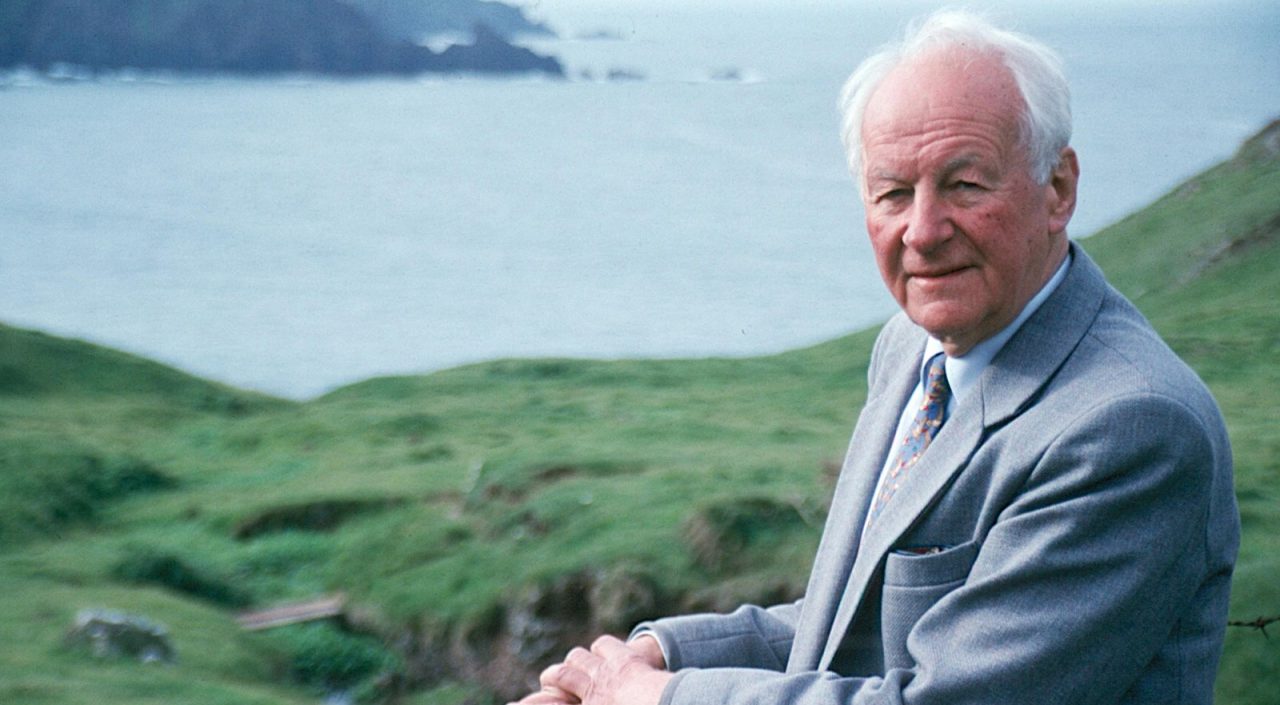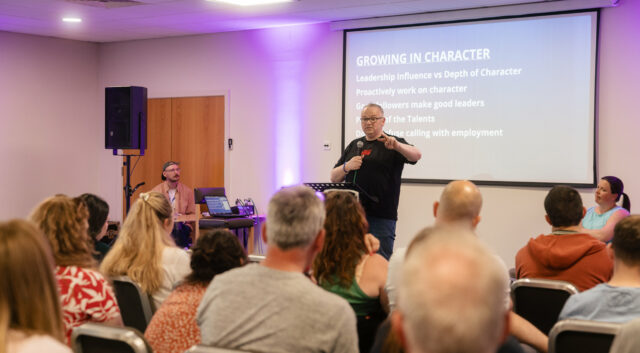A tribute to John Stott from Eleanor Mumford, founder of Vineyard Churches UK & Ireland
The wonderful John Stott was “promoted to glory” on 27th July this year [2011]. And his death seems to us the occasion to consider his remarkable contribution to the work of the gospel of Christ and the wellbeing of the church worldwide. Fulsome obituaries in the Times, Telegraph and Independent, as well as on more predictable websites, testify to the esteem in which he was held. All are well worth reading. In 2005 Time magazine named him as one of the world’s 100 most influential figures – alongside Bill Clinton, Steve Jobs, Bill Gates, Clint Eastwood and Martha Stewart, if you please!
The Times called him the most outstanding evangelical Anglican of his day, with enormous influence as a Christian statesman and a biblical expositor. One churchman wrote “Apart from William Temple, Archbishop of Canterbury until his death in 1944, Stott was the most influential clergyman in the Church of England in the 20th Century”.
For us in the Vineyard the platform he built through his love for and exposition of the scriptures; his commitment to the church worldwide; his training of young leaders; his care for the poor and his instinct for social justice, was one upon whose stability we have found ourselves free to build. Fifty years ago it was never so. John Wimber admired him deeply; studied his books meticulously; and when they met was almost tongue-tied and certainly slightly over-awed.
For ourselves, I worked with him on the mission to Cambridge University in the 1970’s and he came to stay with us soon after we were married, one of the most delightful and godly of men ever to grace our spare room – and there have been a few! In those days Stott’s arena was the university, his longing to make Christ known in every university in the world, was, he said, “the most strategic work imaginable”. His close links with university Christian Unions gave him access to many minds. He would hand-pick students and graduates to explore with him some of the new frontiers; they included future professors of bioethics, medicine and theology.
John was what people would have called “well connected”. His father was titled, a Harley Street physician and a Major-General in the RAMC during the war. He was also an atheist who took deep exception to John’s conversion when a schoolboy at Rugby. Interestingly, it was when Rev 3 v20 was explained to him that he invited Christ to come into his life. He never failed to repeat the story, and to enormous effect in many other lives.
John went on to Cambridge where he achieved a double first in modern languages (his father hoped for a diplomat) and theology. He trained at Ridley Hall and was ordained in 1945. He became Curate, then Rector, and latterly Rector Emeritus of All Souls, Langham Place. He served the Queen as a Royal Chaplain – the thought of whose resignation with age, she refused to entertain!
His writings were wonderful, 51 books in all, the royalties from which were poured into his Langham Trust for the equipping of leaders in countries where resources and experience were limited. His own lifestyle was very modest, living in just a two-room flat near All Souls, and writing in a little old farmhouse on the Welsh coast, where he surrendered his oil lamps to electricity only in 2001.
I suppose his greatest books, were one to single them out, would include “Basic Christianity”, a brilliant explanation of the faith, achieving what G K Chesterton would call “simplicity the far side of complexity”. “The Cross of Christ” is a ‘magnum opus’ and possibly the best book one could ever procure on such a towering subject. If he had a favourite verse in the Bible it was from Galatians, where Paul wrote “God forbid that I should glory, save in the cross of our Lord Jesus Christ, by whom the world is crucified to me, and I to the world.” (Gal 6:14 KJV) A former colleague wrote on the day he died: ”John Stott did not die today. He died more than half a century ago, when he accepted the sacrificed of Jesus Christ on his behalf.” I heard John Wimber say exactly the same of his own life. Appropriately, John Stott died listening to Handel’s ‘Messiah’ and the aria “I know that my Redeemer liveth.”
His other great book “Issues Facing Christians Today” is a hugely important, clearly thought through, highly articulate consideration of some of the most contentious conversations we, as Christians, will ever be called upon to undertake. Pursuing contemporary issues, and in many ways well ahead of his own contemporaries, Stott established the London Institute of Contemporary Christianity in 1975.
So how might one capture the essence of this “hero of the faith”? (How he would hate such accolades. He used to say “flattery is like cigarette smoke. It does you no harm so long as you don’t inhale”.) He was both humble and humorous, and wonderfully charming.
He was a man of prayer, who would begin each day with an individual greeting to the Father, to His Son, and to the Holy Spirit. Another much loved prayer, which he used every time he preached, was “Heavenly Father, may your written word be our Rule, your Holy Spirit our Teacher, and your greater Glory our supreme concern”.
He was a deep and ever-practical student of the Bible. The first Christian book Eleanor ever read was his commentary on 2 Timothy, “Guard the Gospel”. She tells of being mesmerised by his writing and amazed that the Bible could be thus approached and brought to life.
He was a man with a consuming passion for people’s well being. He once lived as a homeless man under London’s arches until his rather beautiful speaking voice helped to rumble him. In the 1950’s he set up sports clubs for parish children long before it had occurred to anyone else to do so.
He organised training scholarships in the West for potential future leaders in Asia, Africa and South America, which Billy Graham, a close friend, called a significant factor in the explosive growth of Christianity in parts of the Majority World (what we used to call the Third World). Billy Graham also wrote of John, “I cannot think of anyone who has been more effective in introducing so many people to a biblical world view. He represents a touchstone of authentic biblical scholarship that, in my opinion, has scarcely been paralleled since the days of the 16th century European reformers”. Quite a claim!
It would be only fair to recognise that, like most of us, John had serious blind spots. He had a somewhat restricted view of the ministry of the Holy Spirit, and the practising of His gifts, so precious to us in the Vineyard. His loyalty to the Church of England was absolute and sometimes at the cost of a wider understanding of other groups and churches.
Towards the end of his life with his health failing, he was encouraged to write a legally valid document, called an ‘advanced directive’, providing a statement of his wishes and concerns, which could be used by his doctors should he become unconscious or incapacitated. He laid out various instructions, and then concluded in this wonderful way, “However, I do not wish my life to be artificially prolonged if thereby I am left in a terminal or vegetative state. The reason that I do not wish to cling to life is that I have a living hope of a yet more glorious life beyond death, and I do not wish to be unnecessarily hindered from inheriting it”.
Don’t you love the man!








